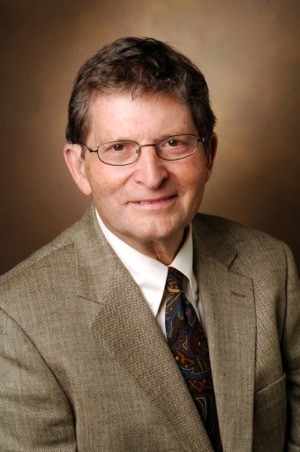
Joseph H. Hamilton, the Landon C. Garland Distinguished Professor of Physics at Vanderbilt University, has been elected as a member of the Academia Europaea, a non-governmental association of independent scientists and scholars in arts and sciences that promotes learning, education and research.
Hamilton was one of 69 new members elected in 2011 from the field of physical sciences and engineering. He joins three other members from the United States elected in all fields this year.
The experimental nuclear physicist was elected based on his pioneering research on how atomic nuclei behave in unstable conditions, a field which has become a major frontier with several countries building billion dollar facilities to pursue such studies.
Through the 1970s, nuclear physicists operated on the assumption that each nucleus had a single fixed shape. However, in 1974-76, Hamilton’s seminal discoveries of nuclei that simultaneously assume both spherical and deformed shapes broke the existing paradigm and forced scientists to adopt a more complex view of the nucleus. Today, this “nuclear shape coexistence” has been found regularly throughout the periodic table.
Similarly, [rquote]Hamilton’s studies of spontaneous fission have made major contributions to our understanding of the process of nuclear fission, the energy source for commercial nuclear power plants and the atomic bomb, and of the structure of neutron-rich nuclei.[/rquote]
In another area, about 30 years ago, theoretical predictions indicated an “island of stability” – a group of superheavy elements that can be long lived although their nuclei are crammed with substantially larger numbers of protons and neutrons than the largest naturally occurring elements. These superheavies are predicted to have much longer lifetimes than most of the artificial elements created thus far. Although physicists have not yet reached this region of stability, the properties of the recently discovered elements 113, 115 and 117 – discoveries in which Hamilton played an important role – have provided strong support for its existence. If stable superheavy elements do exist and can be created, they will have novel physical properties which could have important applications.
The Academia Europaea was founded in 1988 to serve as a European academy of arts and sciences. It has about 2,300 members from 35 European and eight non-European countries. Its membership consists of leading experts from the natural sciences, humanities and letters and includes 38 Nobel laureates. It organizes workshops, conferences and study groups; publishes a scholarly journal and other academic materials; and provides expert advice on European science policy matters.